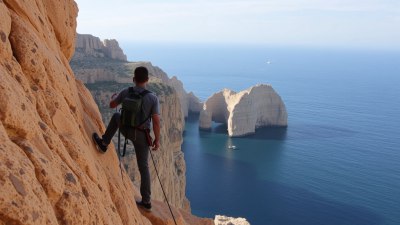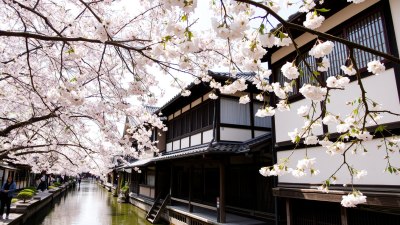The Breath of History in Kranj, Slovenia
Explore Kranj, Slovenia’s historical heart, rich with culture and stunning architecture.

Image created with Flux Schnell
Kranj, a charming town in Slovenia, is a destination that whispers stories of its rich past in every corner. Situated at the confluence of the rivers Sava and Kokra, Kranj boasts a stunning mix of historical architecture, breathtaking natural beauty, and a vibrant cultural scene that captivates both locals and visitors alike. In this article, we will dive deeper into the history of Kranj, uncover its hidden gems, and explore what makes this town a picturesque spot to experience the breath of history.
Historical Background
The history of Kranj dates back to Roman times when it was known as Carnium. The remnants of the Roman presence can still be seen through archaeological sites that dot the region. Kranj flourished during the Middle Ages, becoming an important economic and cultural center due to its strategic location along trade routes. The town’s development reached its peak in the 15th and 16th centuries when it became a pivotal settlement in the Habsburg Monarchy.
Historically, Kranj was famous for its glove-making industry, which drew patrons from far and wide. This tradition of craftsmanship is still held in high regard, with numerous shops and boutiques offering locally crafted gloves and leather goods. As you stroll through the cobbled streets, you can see old buildings that showcase the town’s medieval architecture, testament to its prosperous past.
Architectural Marvels
Kranj is adorned with numerous architectural treasures that narrate the story of its evolution. One of the most significant landmarks is the Kranj City Hall (Mestna hiša), which dates back to the 16th century. This building not only serves as a functional space for city administration but also as a historical monument featuring beautiful Gothic and Renaissance elements. Its intricate façade and grand entrance make it a must-see for anyone visiting the town.
Another architectural gem is the St. Kancijan Church, a Baroque masterpiece that sits atop a hill overlooking Kranj. The church's interior is adorned with beautiful frescoes and intricate altarpieces. The breathtaking views of the surrounding valleys from this vantage point are worth the ascent. Kranj’s historic center is a testament to the beautifully preserved medieval architecture, with narrow alleys and quaint squares that seem to transport visitors back in time.
Cultural Significance
Kranj is recognized for its contributions to Slovenian culture, particularly literature and the arts. It was the birthplace of notable poet and writer France Prešeren, who is considered one of Slovenia's national heroes. His influence can be seen throughout the town, with several monuments and references that commemorate his literary achievements. The Prešeren Theatre, a vibrant cultural hub, hosts various performances, including drama, opera, and dance, contributing to Kranj’s lively arts scene.
The town also celebrates numerous festivals and events throughout the year, highlighting its rich cultural heritage. The Kranj Festival, for example, showcases both local and international talents, promoting the arts and bringing together people from different backgrounds. These cultural events create a sense of community that fosters appreciation for Kranj’s historical roots and contemporary creativity.
Nature and Surroundings
Aside from its historical and cultural significance, Kranj is surrounded by stunning natural landscapes that enhance its appeal. The nearby Julian Alps offer a plethora of outdoor activities such as hiking, skiing, and cycling. The picturesque scenery provides a beautiful backdrop for exploring the great outdoors. The nearby Kokra River is a popular spot for leisure activities, including kayaking and fishing.
For those who prefer a more serene experience, the Šmarjetna Hill, located just outside the town, offers calm walking trails lined with lush greenery, perfect for leisurely strolls or picnics. This closeness to nature not only enhances the beauty of Kranj but also provides residents and visitors with a tranquil escape from urban life.
Local Cuisine
No visit to Kranj would be complete without experiencing its delightful culinary offerings. Traditional Slovenian dishes are prevalent in the town’s many restaurants and cafés. You can savor local specialties such as Kranjska klobasa (Kranj sausage) and štruklji (a type of rolled pastry). The blend of Slovenian flavors with Mediterranean influences offers visitors a diverse dining experience.
The town is also home to various wine cellars where you can sample wines from the surrounding regions, particularly the renowned white wines of Slovenia. Wine tasting events often take place, providing insight into the winemaking process and the unique flavors characteristic of the area.
Kranj may not be the largest city in Slovenia, but it is undoubtedly one of the richest in history and culture. The blend of historical architecture, vibrant cultural scenes, natural beauty, and delicious cuisine creates an enchanting tapestry that invites exploration and appreciation. Whether you are wandering through the charming streets, enjoying a local festival, or simply soaking in the natural surroundings, Kranj offers a unique travel experience that truly embodies the breath of history.
In conclusion, Kranj is more than just a destination; it is a journey through time. From its ancient Roman roots to its flourishing arts scene, the town captures the essence of Slovenia’s history while embracing modernity. A visit to Kranj is a visit to the heart of Slovenia, where the past and present coexist harmoniously, awaiting your discovery.











